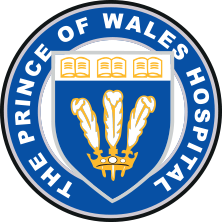Intensive Care Unit (Adult) & High Dependency Unit
How we can help you
Our Adult Intensive Care Unit (AICU) includes the High Dependency Unit (HDU). Here we are able to provide intensive medical treatment and nursing care if you or your loved one is critically unwell, such as after a spinal cord injury; brain surgery or other major operations; or during a life-threatening infection. In the AICU/HDU, we can use machines to support you or your loved one’s lungs, heart and kidneys and provide very close monitoring. Our patient’s wellbeing is our main priority.
The Agency for Clinical Innovation has more information on intensive care services.
Our team includes medical, registered nurses, dieticians, pharmacists, physiotherapists, social workers and speech pathologists who have specialised training in intensive care. We also have administration staff who support our clinical team.
We also work closely with the other health teams from across The Prince of Wales Hospital and The Royal Hospital for Women.
We understand that visiting someone in intensive care unit can be very stressful; we are here to support you. If you would like to talk to someone please speak with the nurse who is caring for your relative/friend. If you need additional support, they can organise a meeting with our social worker or chaplaincy service. You can apply for parking permit while visiting someone in the ICU. The nurse will be able to assist you.
When can I visit?
We welcome family and close friends to visit patients. There are no restrictions on when you can visit, however, we ask that only two people visit at a time. This allows our nursing staff to have access to your family member so that we can provide safe care. If you have been visiting for an extended period of time we encourage you to look after yourself and take time out of the unit to rest.
The main hospital doors are open between 6.00am and 10.00pm. Outside of these hours, entry to the hospital is through the Emergency Department, which is at the Barker Street entrance.
Please press the doorbell when you arrive at the AICU/HDU. Usually you will be met by either the ward clerk or clinical support officer. We ask that you respect the privacy of others and do not enter unless one of our staff is with you. Sometimes if we are busy or dealing with an emergency you may find you need to wait. Before entering, you will need to clean your hands with an alcohol hand rub found at the entrance of the AICU/HDU.
We ask that families and friends do not bring fresh flowers as they can increase the spread of infections.
Are children allowed to visit?
Yes, children are allowed to visit. However, we recommend that you speak with the nurse caring for your loved one before doing so. They can help you to explain what is happening for your loved one.
There is very little space for personal items in the AICU/HDU. If your admission to the AICU/HDU is a planned operation, please only bring a small bag with some toiletries or essentials such as glasses. If there are a large amount of belongings, the nursing staff might ask families or friends to take the belongings home until you are discharged from AICU/HDU. Expensive personal items, like watches should not be brought to the AICU/HDU.
If you are from out of town, see our list of potential accommodation.
In the visitors waiting room outside the AICU/HDU there is a feedback box where you can either fill in a feedback form or nominate a staff member for Staff Member of the Month. Complaints may also be made to the patient liaison officer. All feedback is then reviewed by our Nurse Manager.
All referrals should be directed to the AICU fellow or the on-call specialist. They can be contacted through the hospital switchboard on 9382 2222.
If English is not your first language please ask the nurse caring for your loved one to organise an interpreter if you or your loved one need one.
As a level 6 Adult Intensive Care Unit, we are accredited by the College of Intensive Care Medicine of Australia & New Zealand. We provide clinical teaching and training opportunities for doctors wishing to specialise in Intensive Care Medicine. Nursing staff are also supported by specialised ICU Education team to progress through a professional development pathway.
Prince of Wales ICU practices evidenced-based medicine, and is involved in several research projects. As such, on occasions you may be asked to participate in a research project. This is not mandatory; however, should you be willing to participate, we will obtain an informed consent from you or your next of kin.
